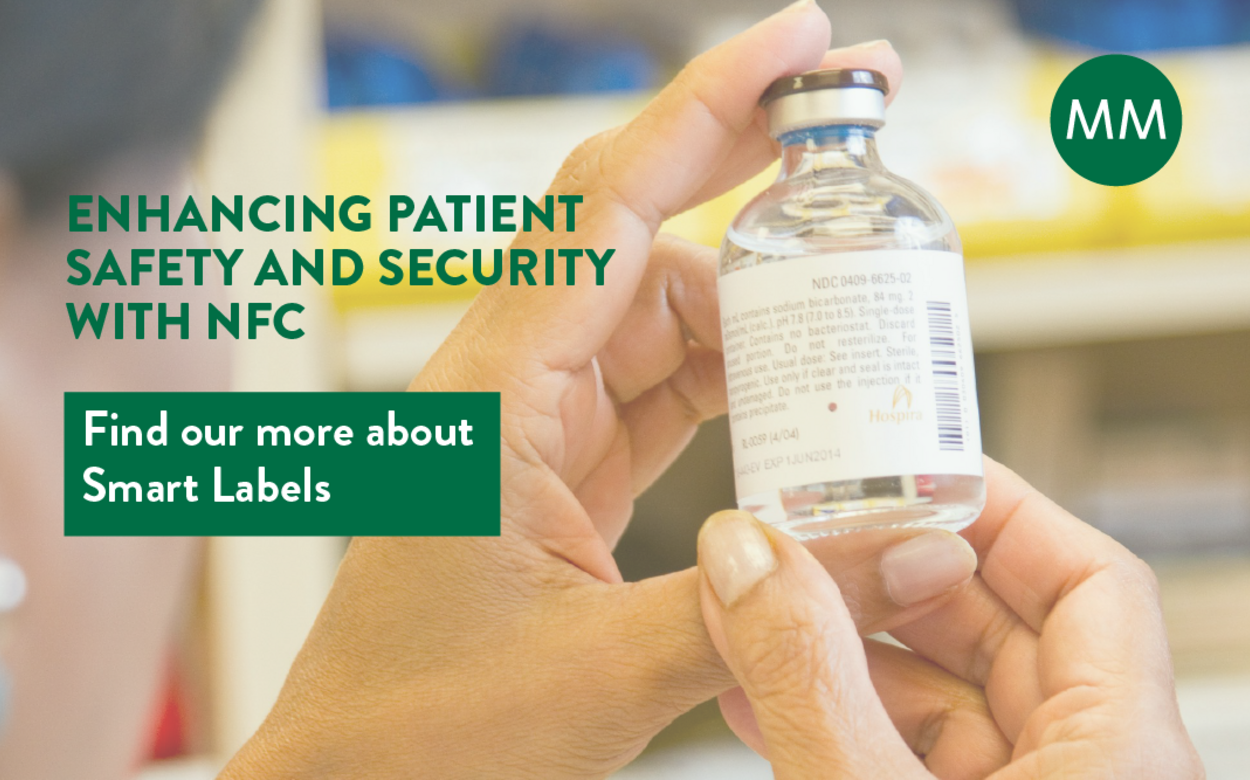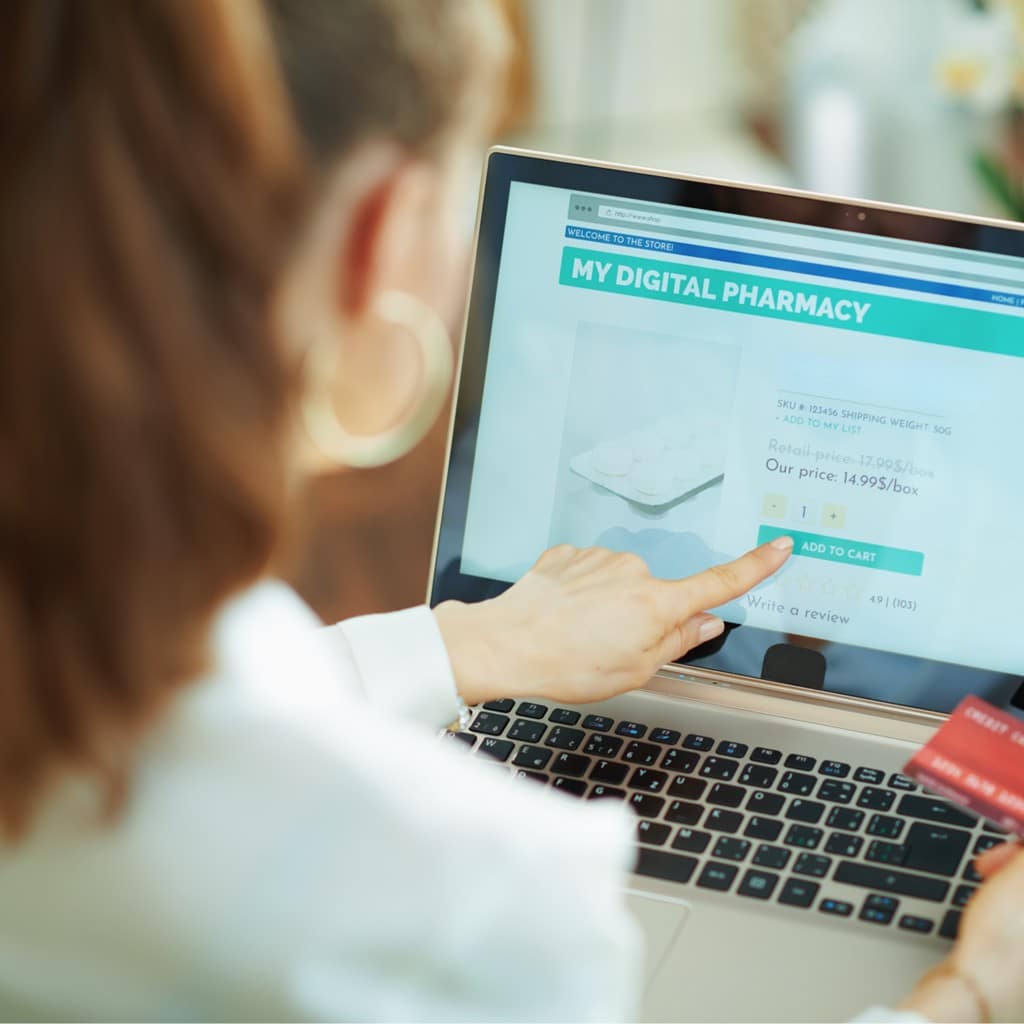Enhancing patient safety and security with NFC-enabled smart labels

In an age where technology increasingly influences consumer behaviour and purchasing decisions, the pharmaceutical and healthcare industry has not been left untouched.
With a robust compound annual growth rate (CAGR) of 7.6% according to intelligence firm Grand View Research, the pharmaceutical industry is on the lookout for solutions to protect patient safety, improve medication adherence and ensure the integrity of their products in new ways. Naturally, packaging forms a clear focal point in achieving this.
One such technology that holds immense potential in this regard is Near Field Communication (NFC) within smart label design, and it’s gaining significant traction in the pharmaceutical sector.
As a comprehensive supplier of secondary packaging solutions to the pharma and healthcare sectors, MM Packaging recognises the significance of NFC-enabled smart labels in elevating patient safety and adherence, as well as simplifying track and trace within the industry, and proudly offers the technology as part of its range.
What is NFC?
Near Field Communication is a wireless connectivity technology, based on Radio Frequency Identification (RFID).
NFC allows for short-range, contactless communication between two devices: a reader and a tag. In pharmaceutical packaging, the tag is a small electronic component embedded in labels, packaging materials, or even directly onto containers. NFC operates at a frequency of 13.56 MHz and the technology is often found in smartphones, making it highly accessible to patients, consumers, and healthcare professionals.
The key feature of NFC technology is its short-range communication. When an NFC-enabled device comes into close proximity with an NFC tag, they establish a connection that enables the exchange of information. The proximity requirement ensures that data transfer is secure and controlled, making it ideal for the pharmaceutical industry, where data security and patient safety are paramount. NFC tags can store data, such as unique product identifiers, information about the product and safe usage instructions, and even links to digital resources.
Integrating NFC technology into pharmaceutical packaging labels is straightforward, yet highly impactful. NFC tags can be incorporated into various types of labels, including adhesive labels or smart labels that are applied directly to medicine containers, cartons, or packaging materials. These NFC labels are often thin, flexible, and discreet, ensuring they don’t compromise the packaging’s appearance, clarity or functionality.
Putting versatility front and centre, NFC tags can be customised to contain specific information about the product, such as its batch number, expiration date, or dosage instructions, giving unparalleled visibility of a product journey.
The versatility of NFC tags makes them a powerful tool in enhancing patient safety, combating counterfeit products, and improving medication adherence within the pharmaceutical industry. As pharmaceutical companies continue to embrace this technology, it is set to redefine the way patients interact with their medications and ensure that each dose is a safe, authentic, and well-informed one.
Why explore NFC-enabled smart labels with MM Packaging?
The technology behind NFC-enabled smart labels provides many diverse benefits to businesses along the pharma supply chain, in key areas such as safety, security and brand reputation.
Medium traceability: Pharma businesses must prioritise supply chain transparency in order to deliver product security. Through enabled labels, NFC tags offer a robust solution for tracking products throughout the supply chain.
Combined with location awareness and cloud-based monitoring, pharmaceutical companies can maintain control over their products from manufacturing to the user’s hands. The ability to trace both genuine and counterfeit products empowers companies to comply with medical regulatory laws and swiftly respond to any fraudulent activity.
Anti-counterfeiting: Counterfeiting is acknowledged as a significant threat to the pharmaceutical industry. In some markets around the globe, the World Health Organization (WHO) reports that as much as 10% of pharmaceutical products are counterfeit or illicit. This risks user safety with products that are often unregulated, untested, and unlikely to address the relevant health concern.
NFC-enabled smart labels offer a simple solution. Patients and healthcare professionals can easily verify a product’s authenticity by simply tapping the NFC tag with a smartphone. This real-time authentication allows pharma businesses to add another layer of security to their operations and provide a deeper level of patient safety.
Anti-Tampering and Product Integrity: NFC technology is a powerful tool to safeguard product integrity. These smart labels allow both manufacturers and patients to check if a product has been tampered with before purchase. This anti-tampering feature instils more confidence in patients, assuring them of the authenticity and safety of the product in front of them.
User engagement: NFC technology empowers users to access crucial information about their pharmaceutical products, including dosage instructions, side effects, and more. Globally, up to 85% of smartphones and mobile devices are NFC-enabled, making the technology ideal for connecting with the needs of users.
By taking tomorrow’s wireless technology and making it versatile and scalable for today’s market, NFC-enabled smart labels are revolutionising the pharmaceutical and healthcare sector by enhancing patient safety, combating counterfeit products, and improving patient adherence.
MM Packaging, as a leading supplier of secondary packaging, is proud to offer NFC-enabled smart labels as part of its comprehensive pharmaceutical packaging and anti-counterfeit technology range. For today’s businesses, embracing NFC technology is not just a leap into the future; it’s a step toward a safer and more patient-centric pharmaceutical industry.



